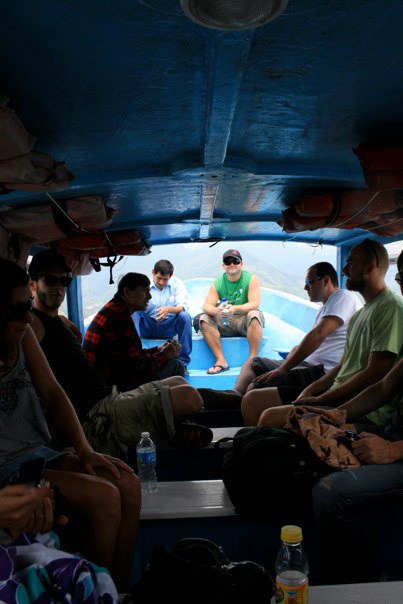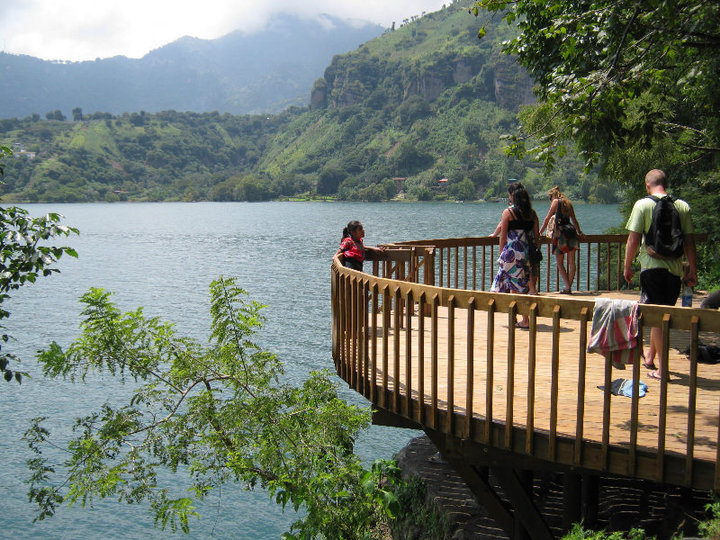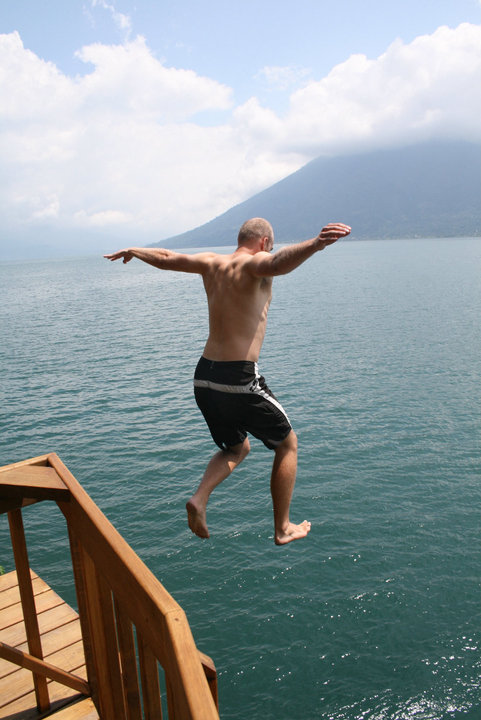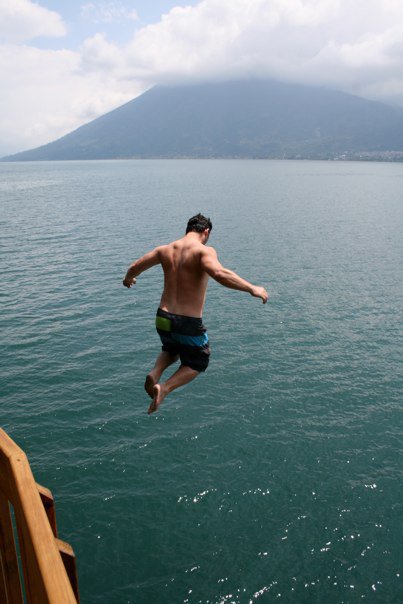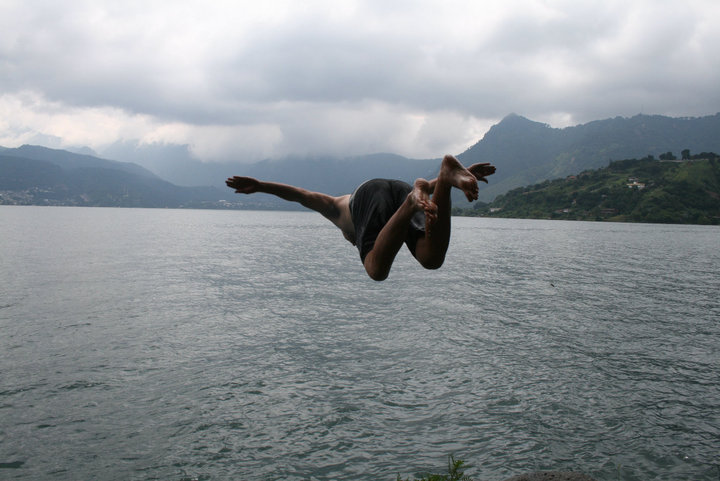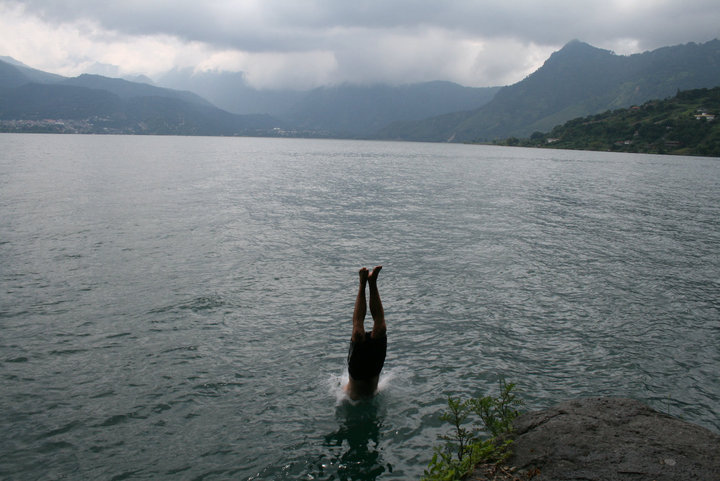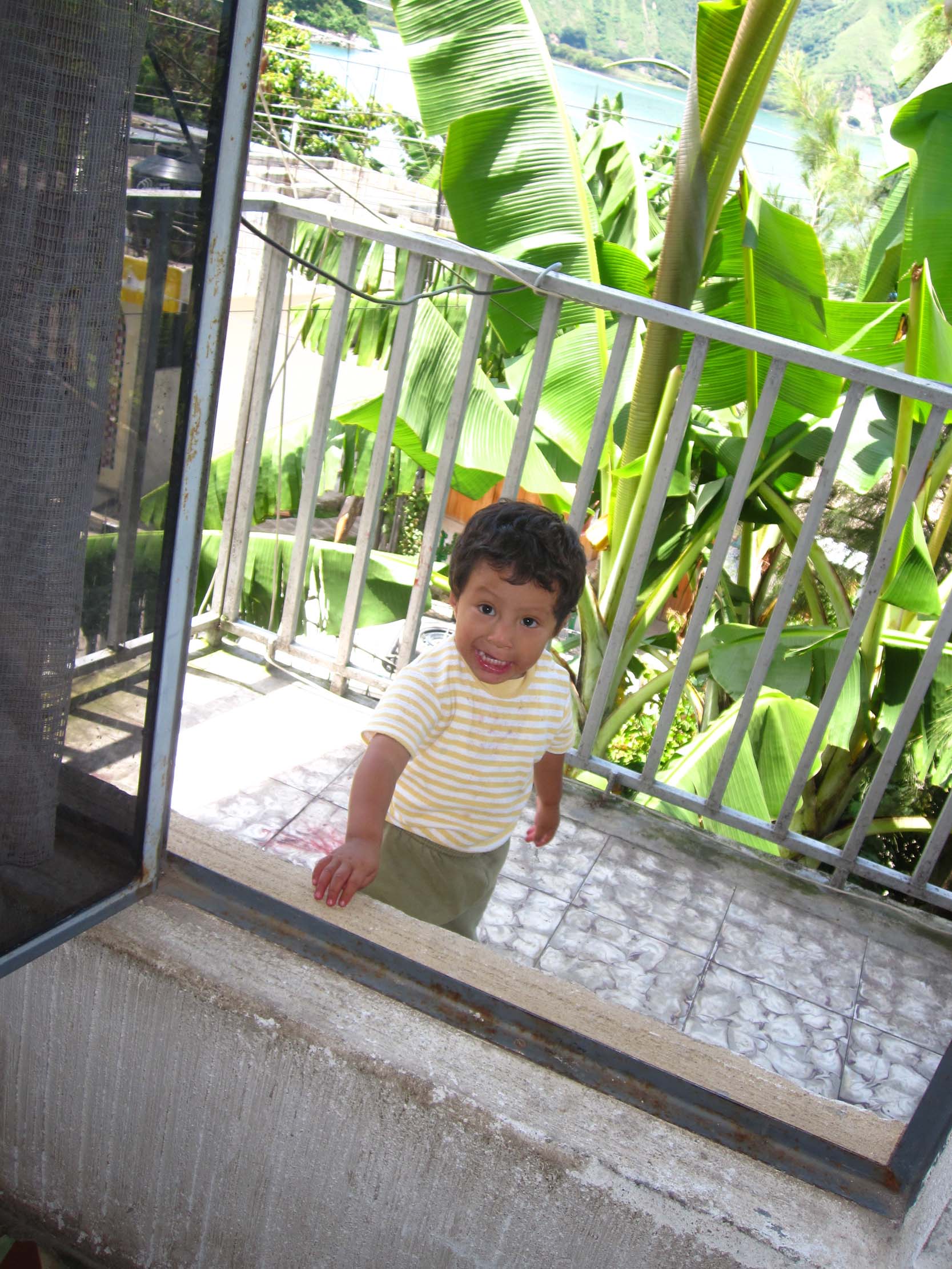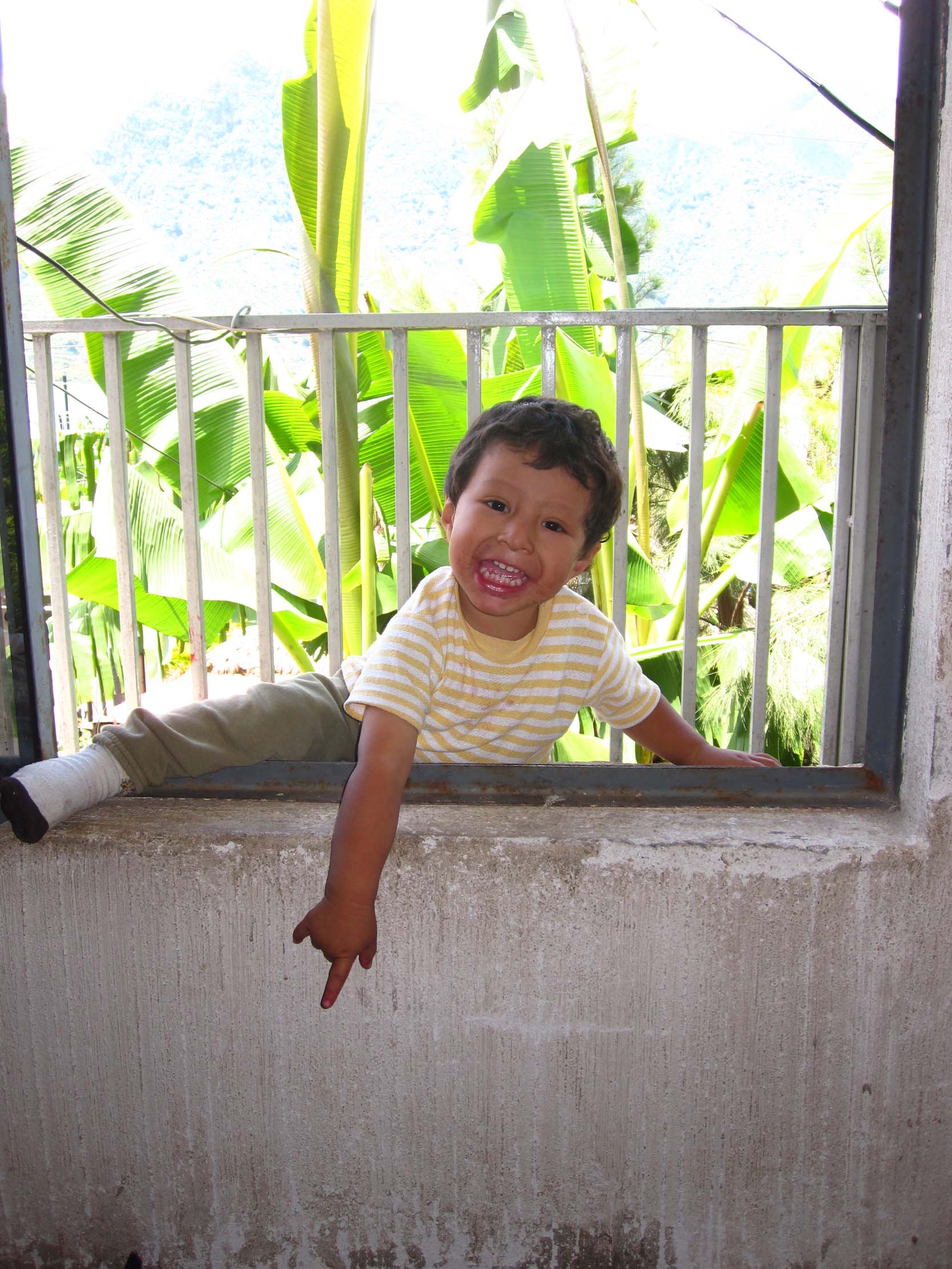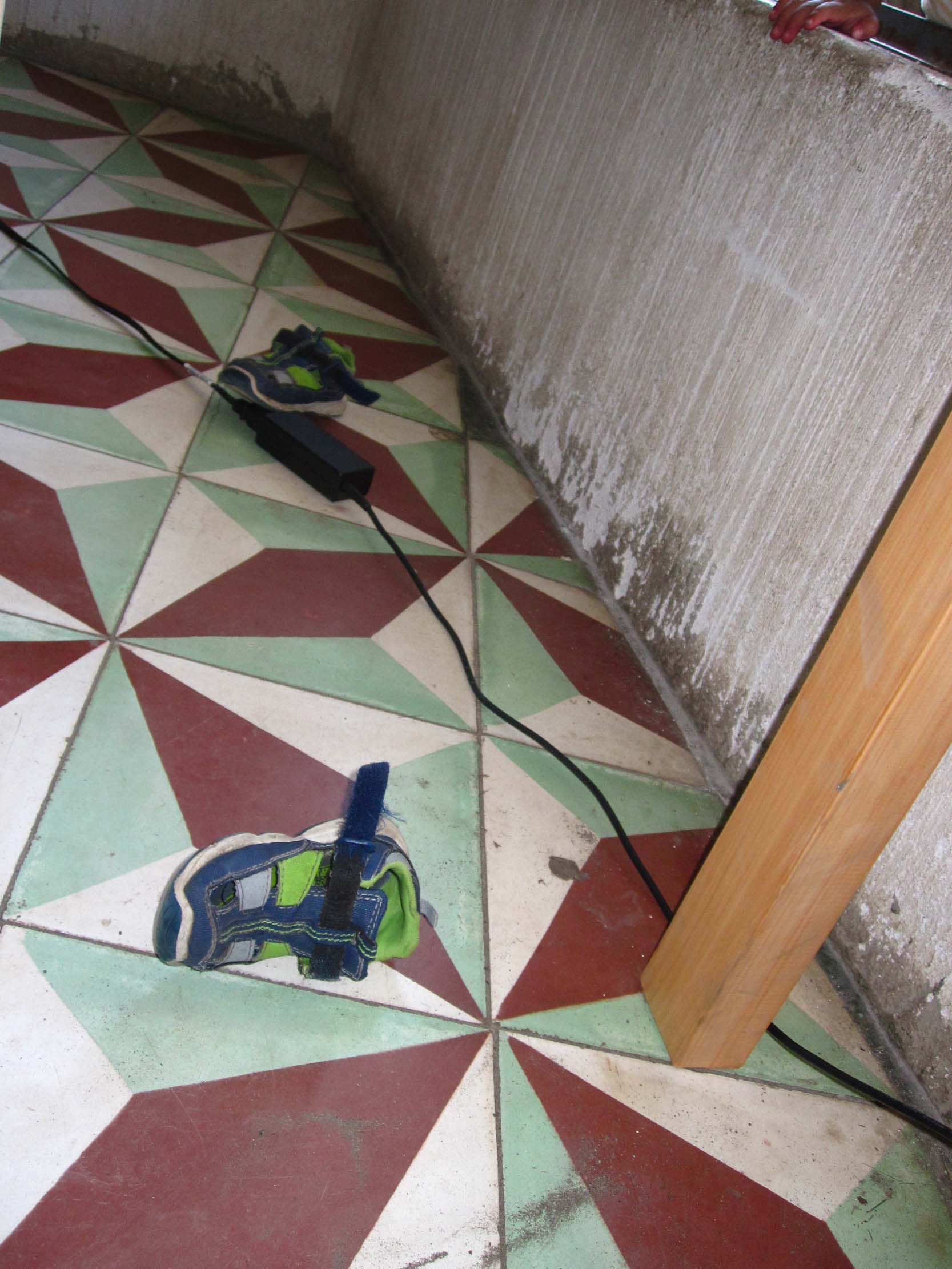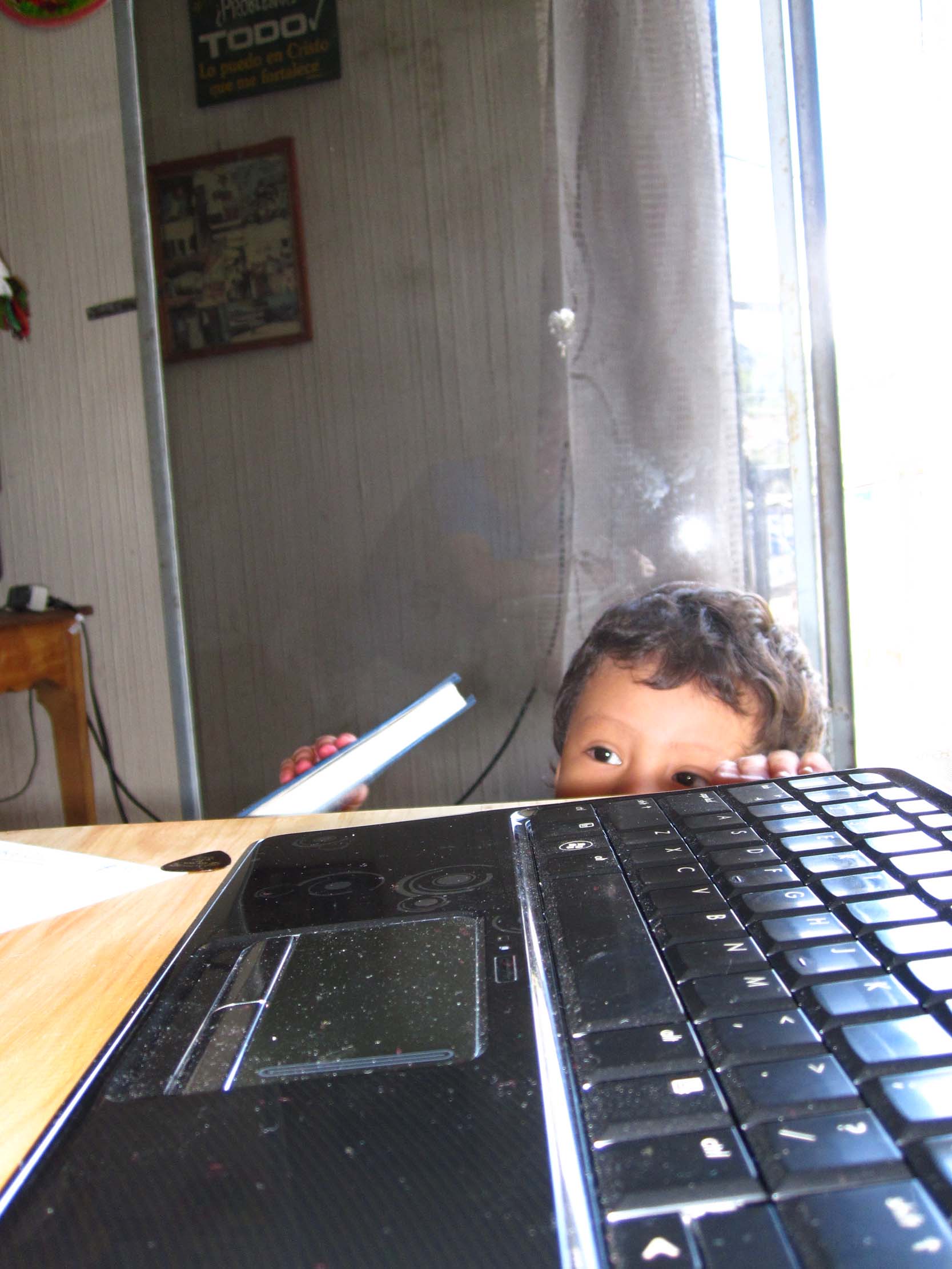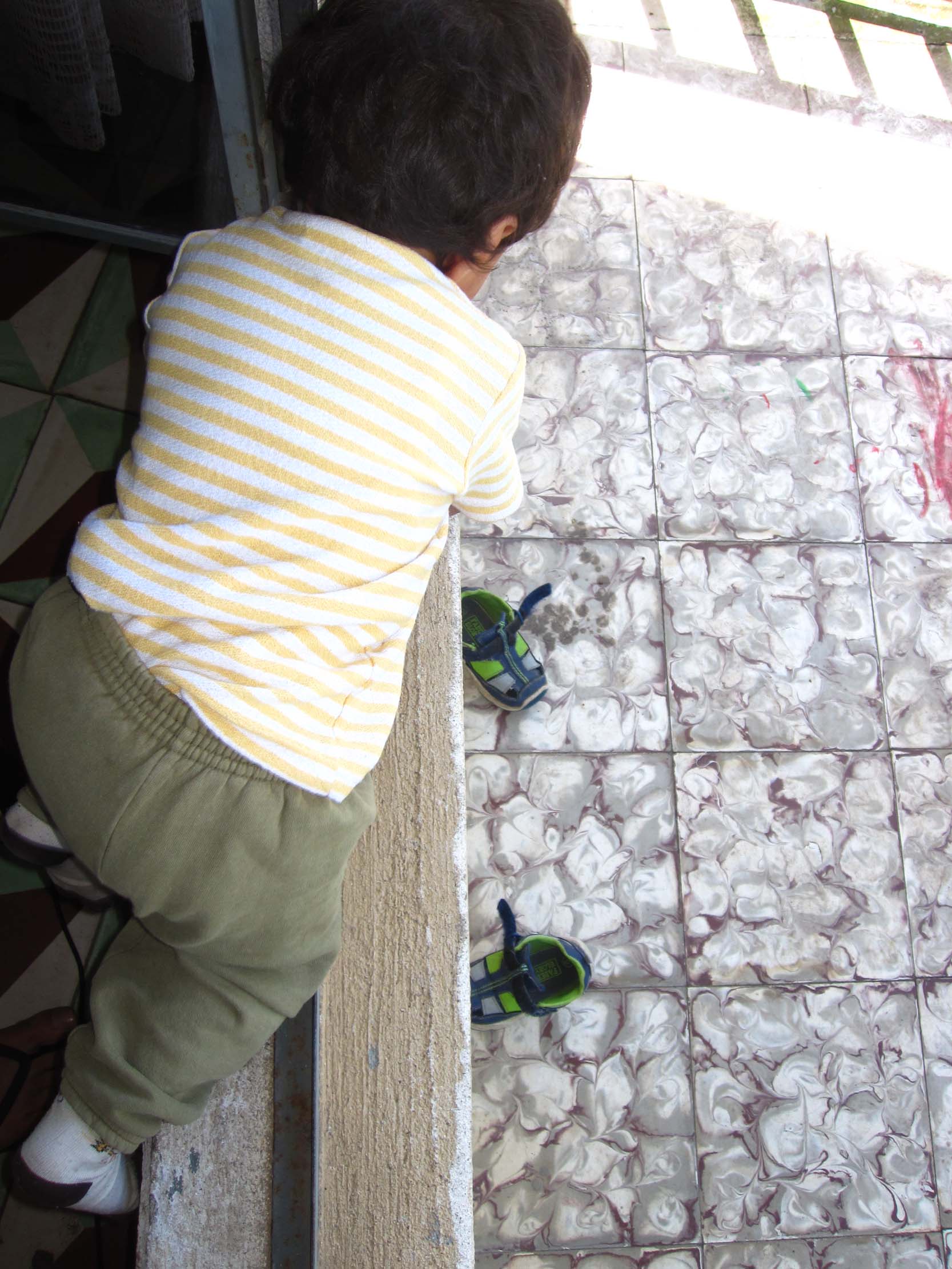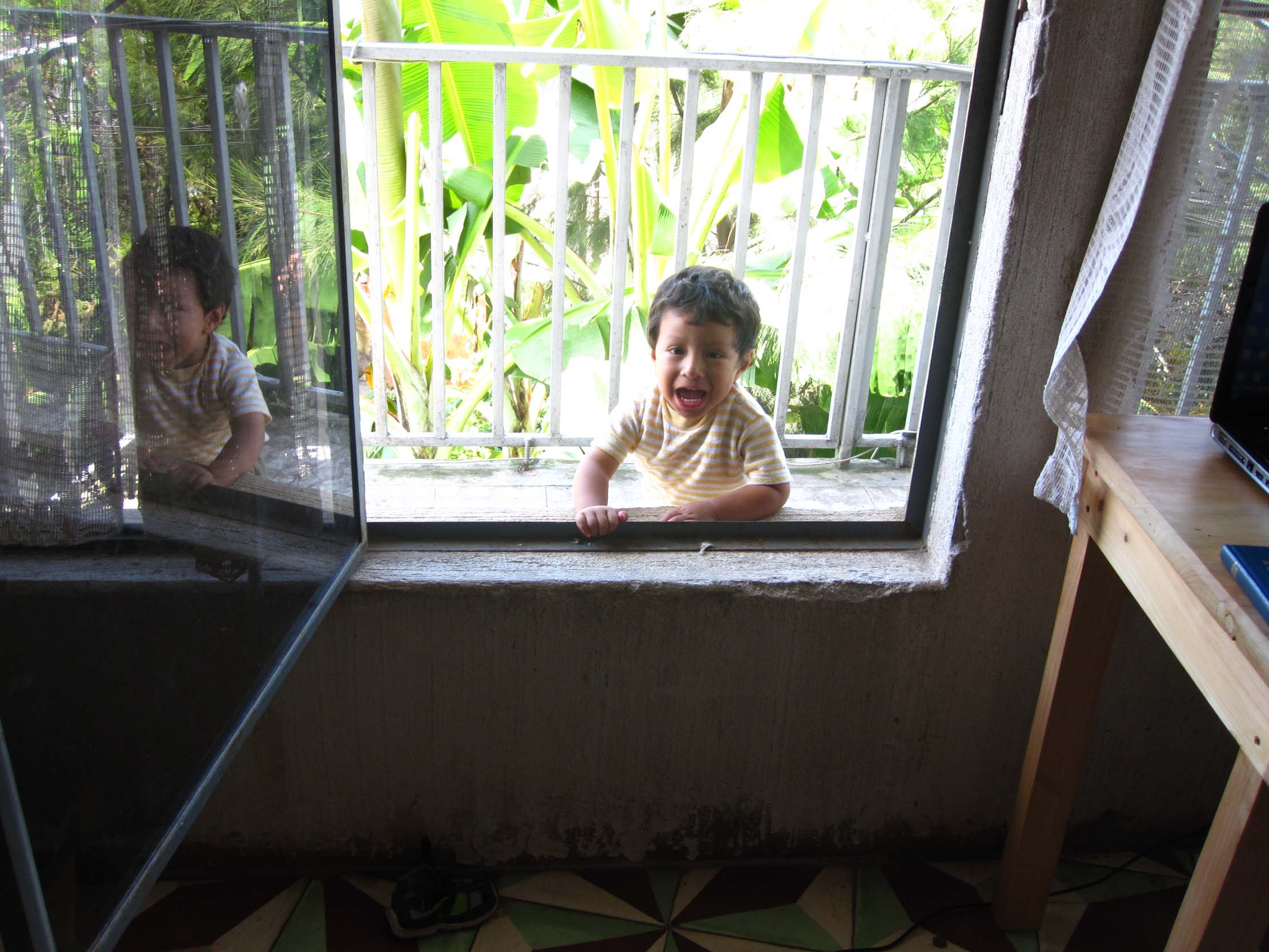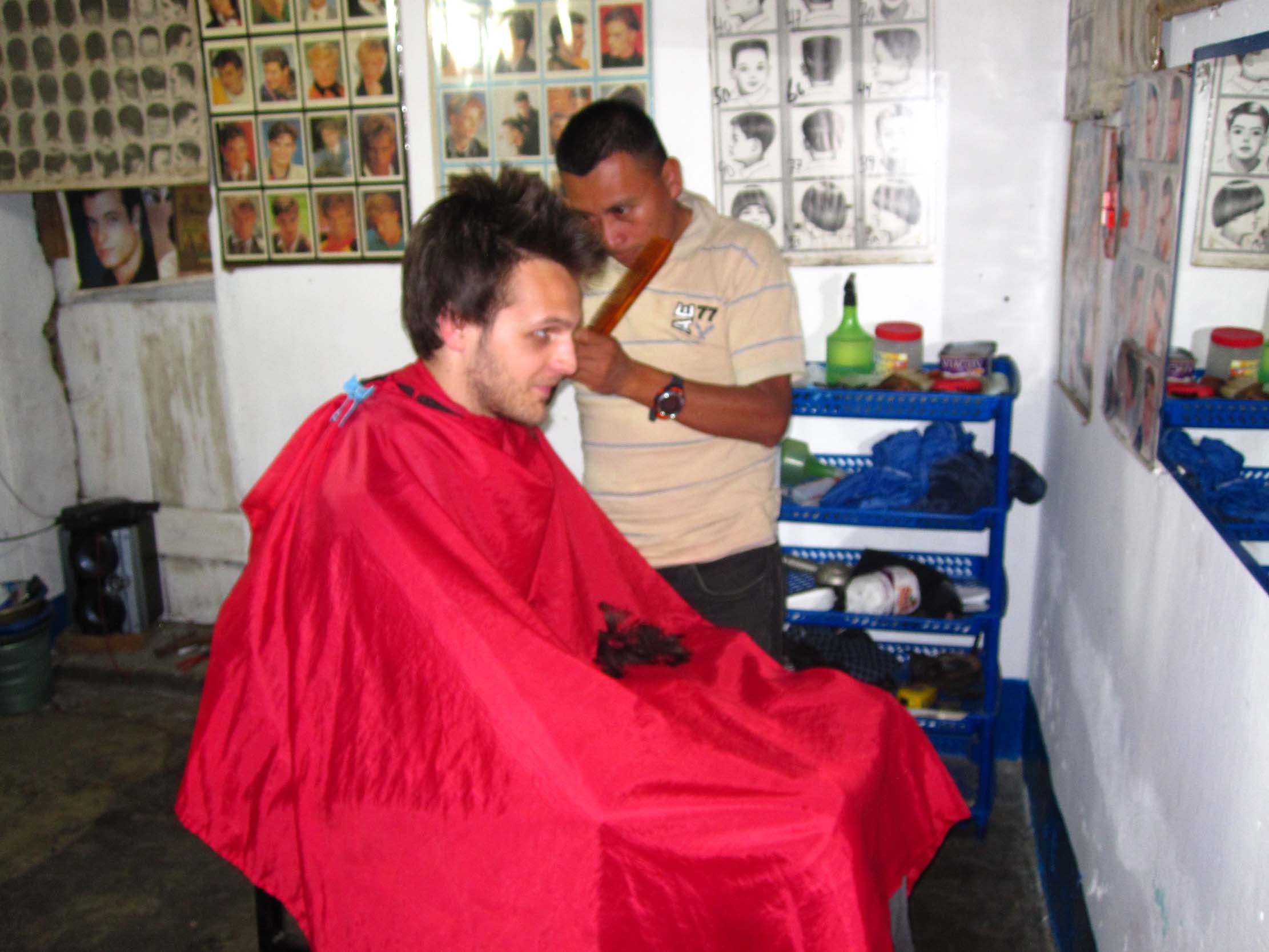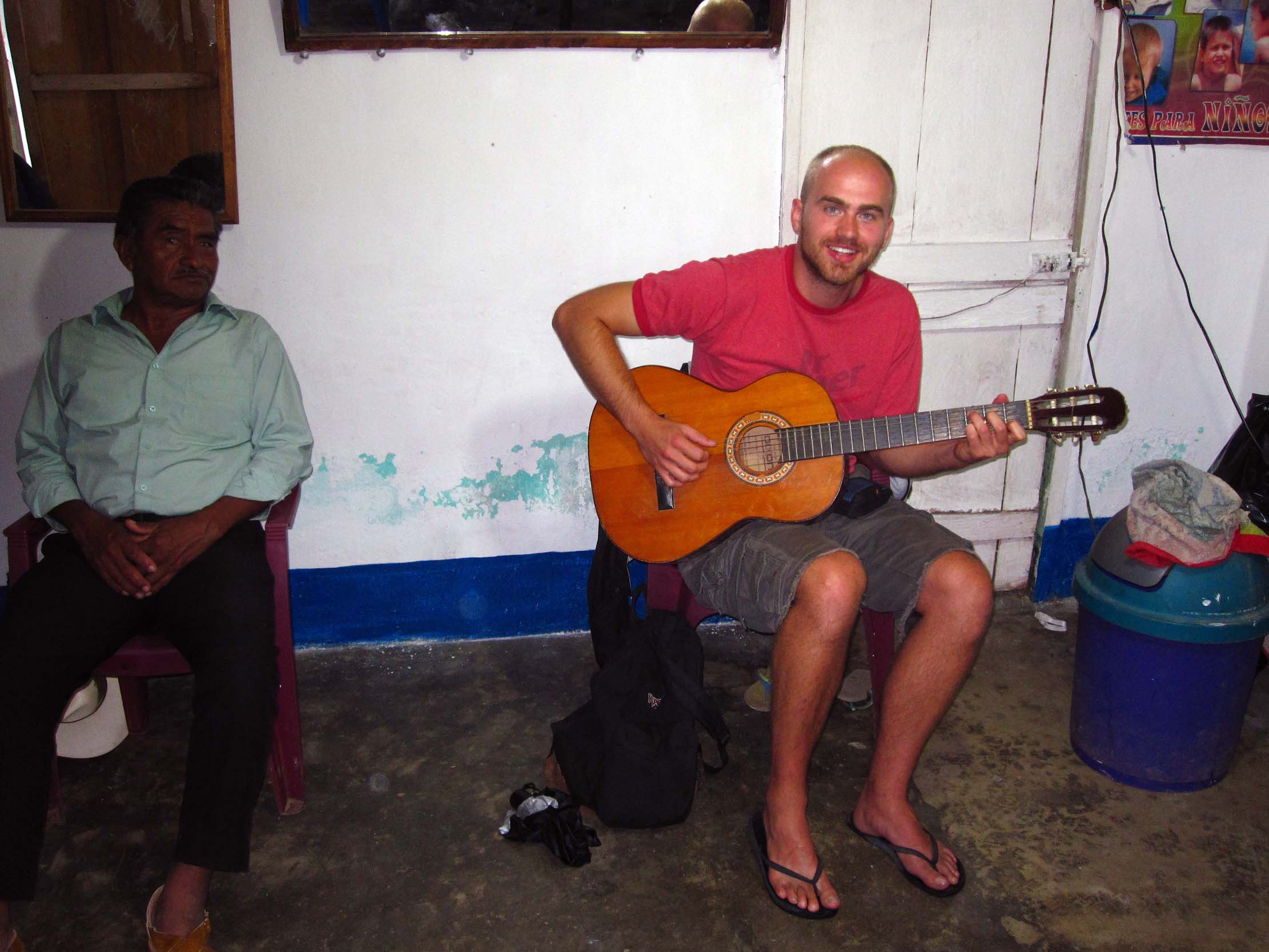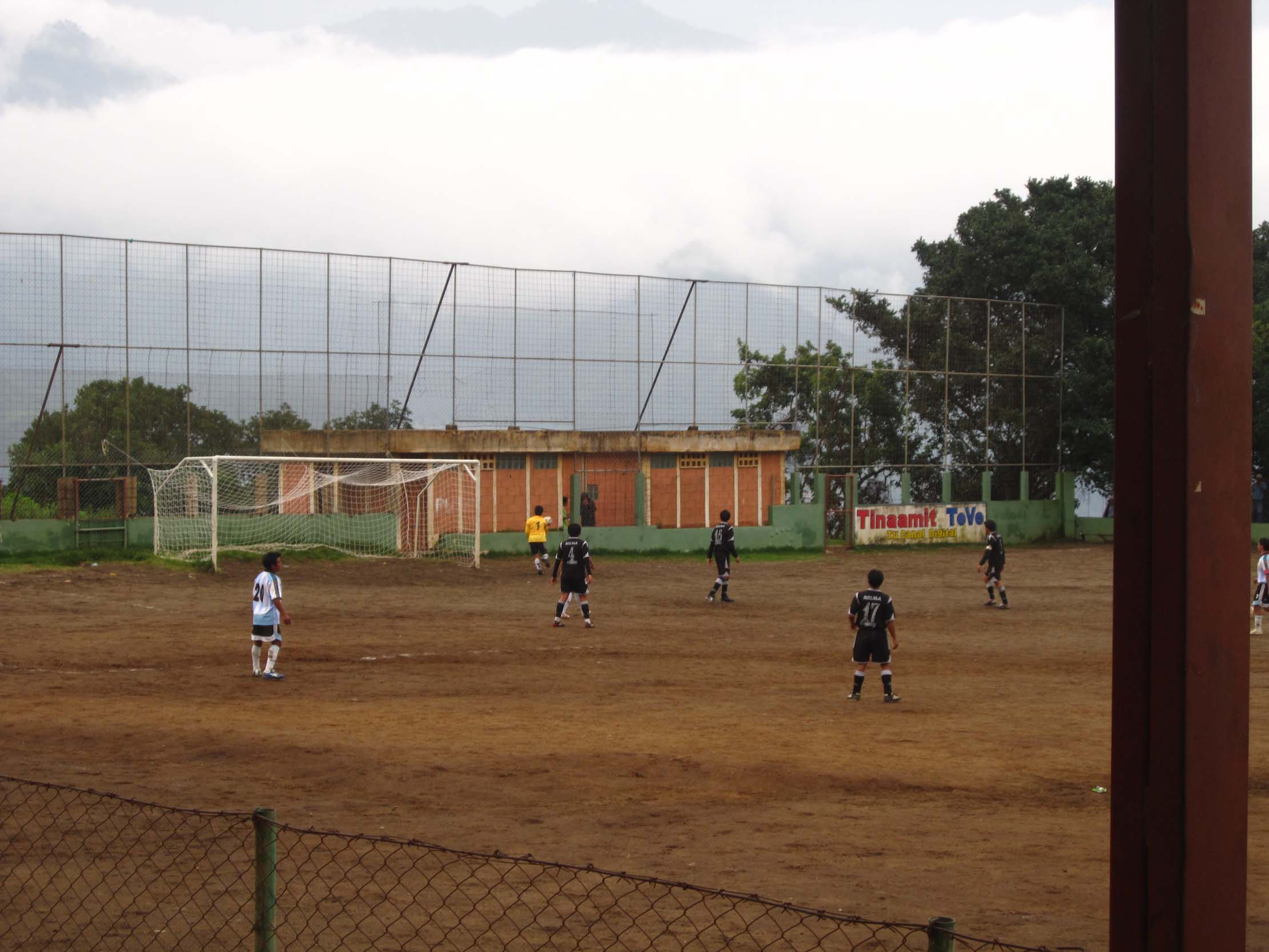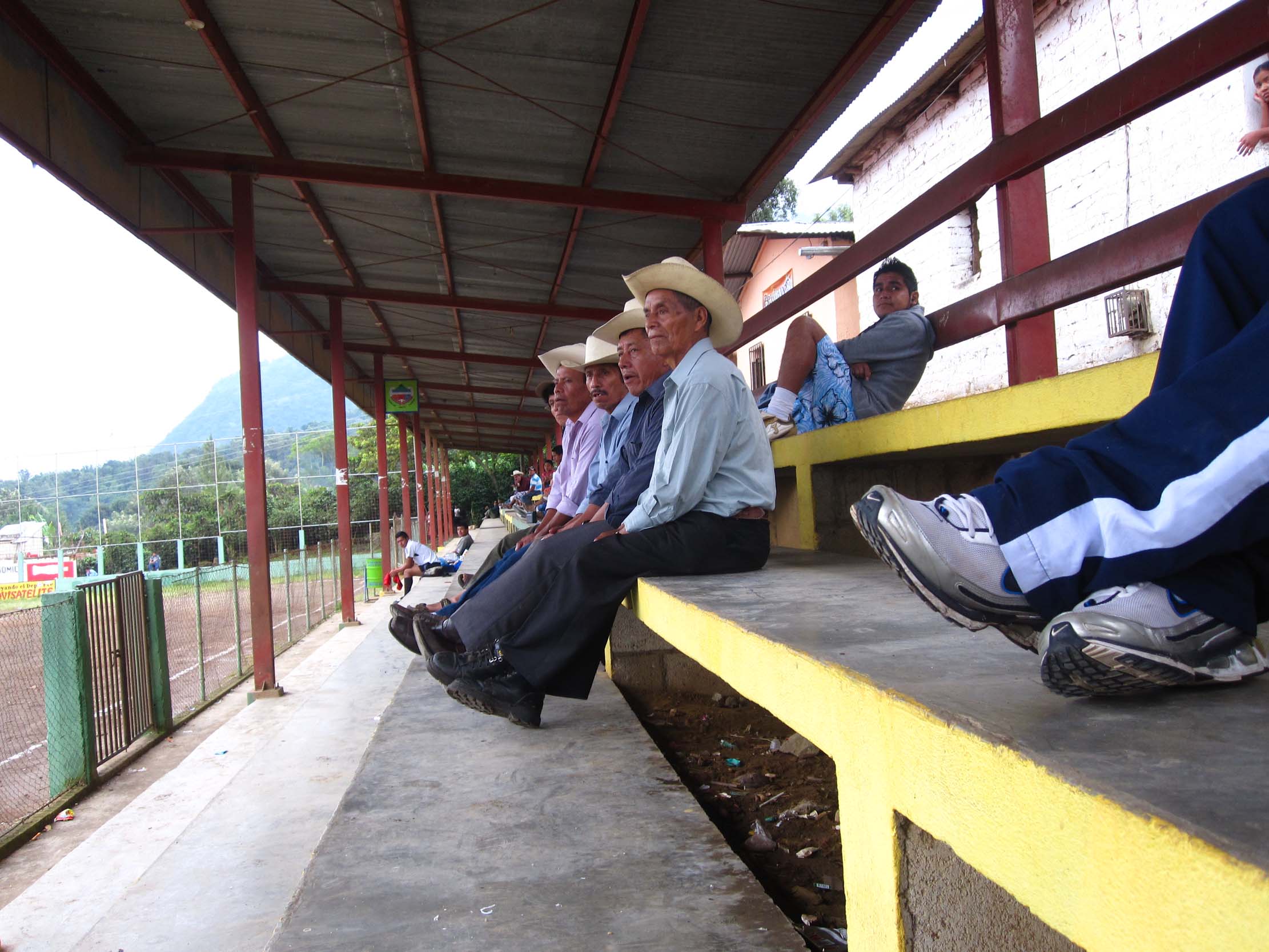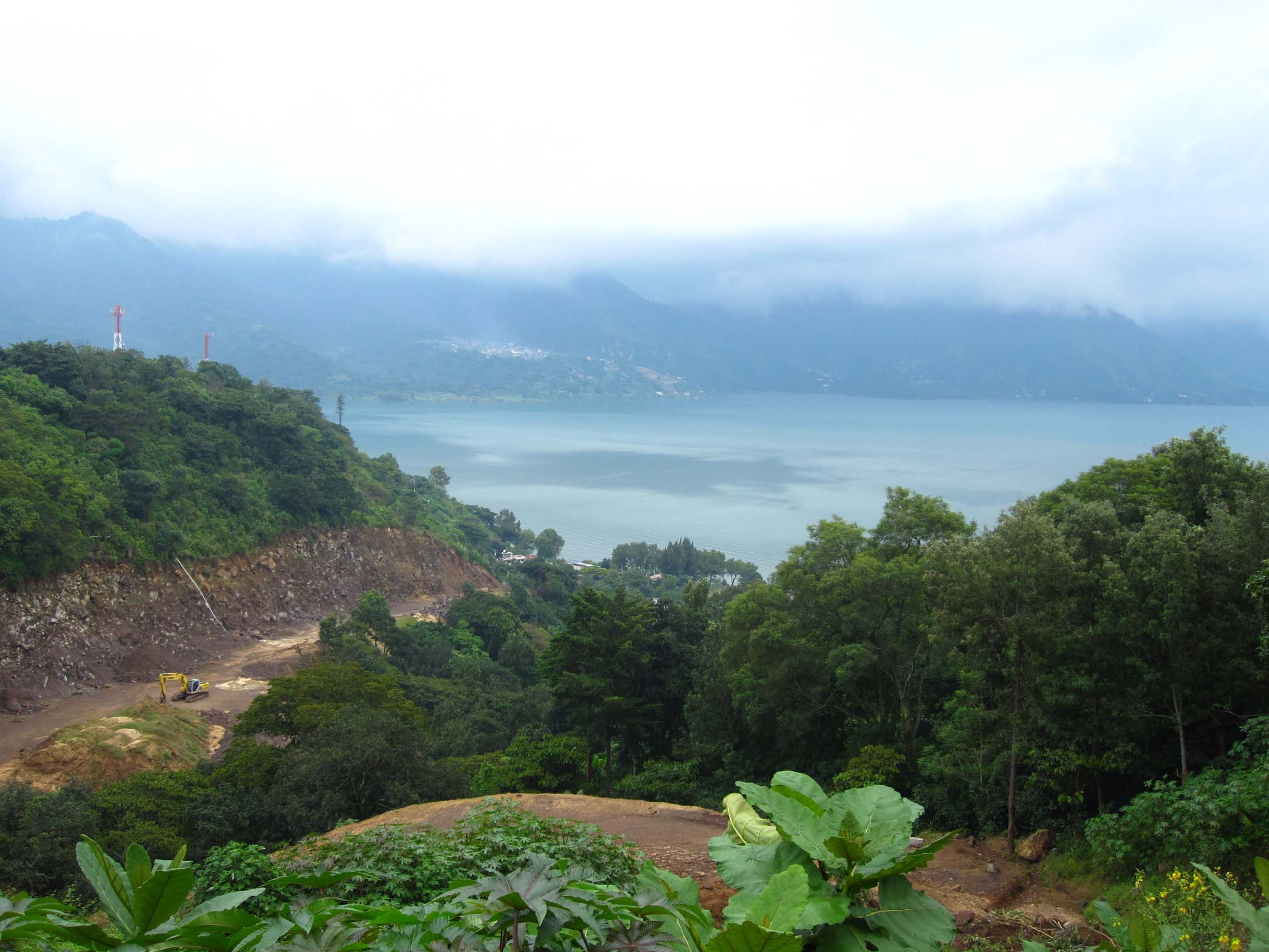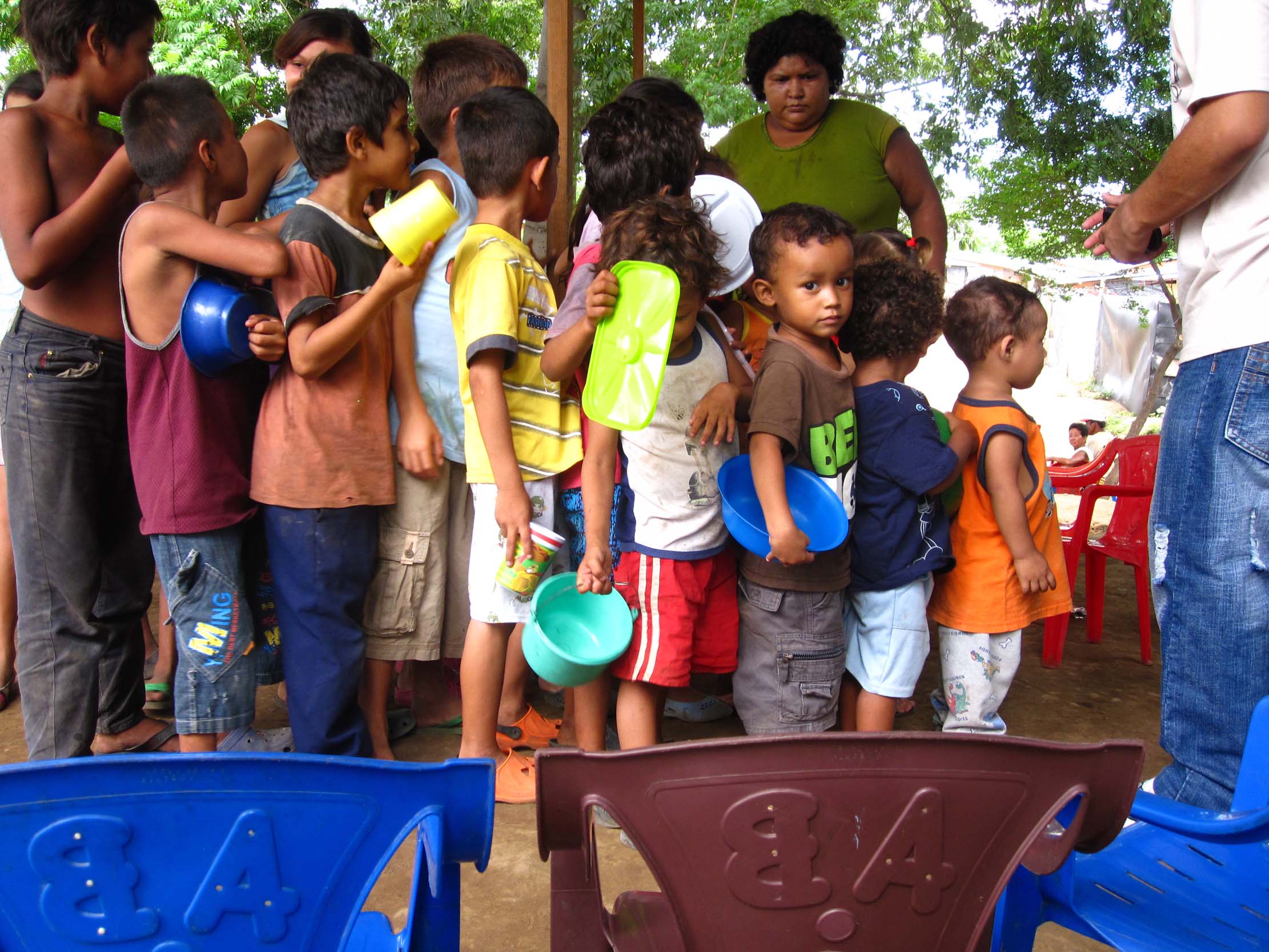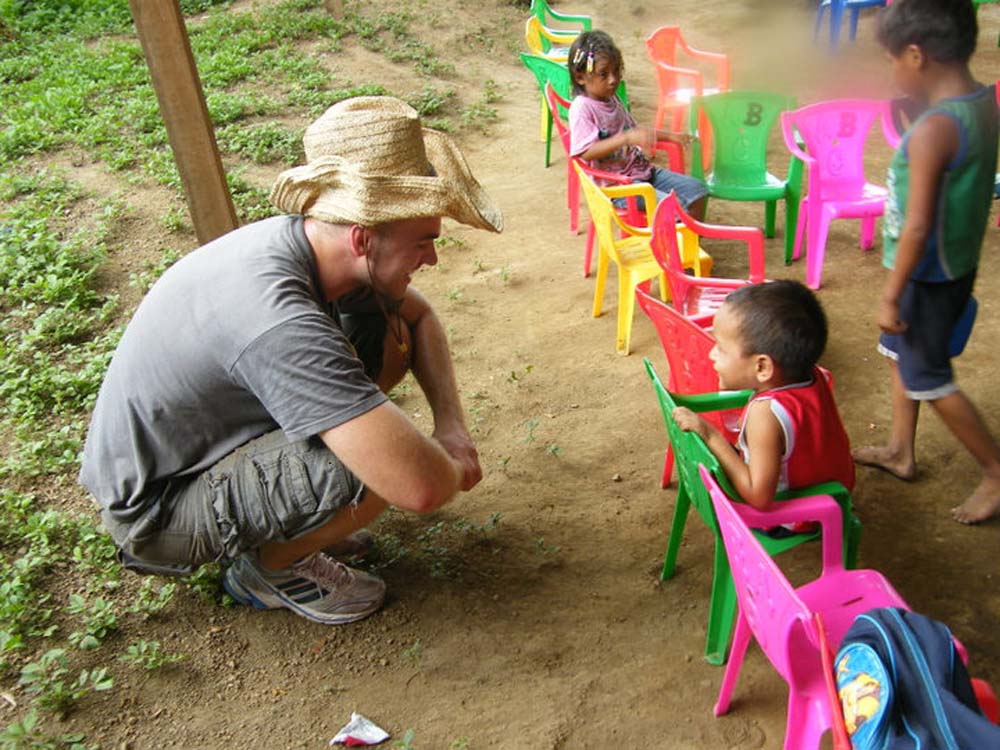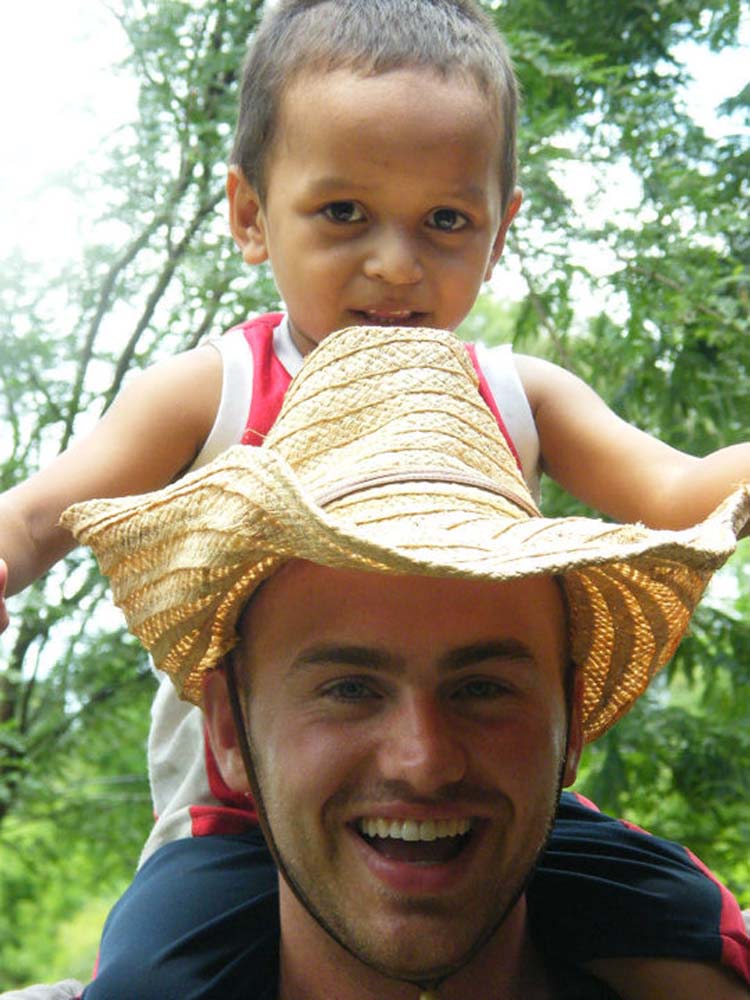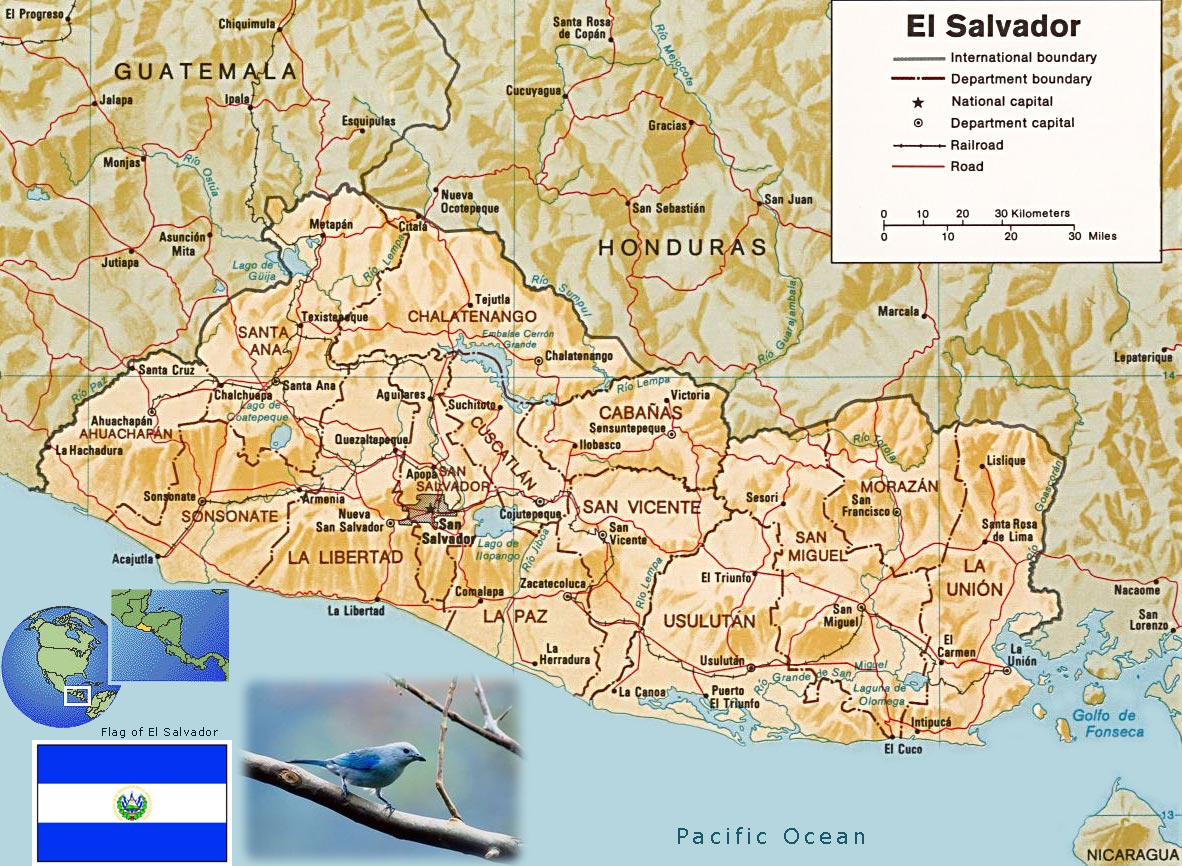Every time I step close to the edge of an elevated area, my hands start to sweat. It’s a natural reaction because I’m afraid of heights, and have been ever since I can remember. I don’t like ladders, hotel balconies, or views from the summit. I think I’m getting better though, and rarely do I back down from a challenge to see someone’s roof, spit off a balcony, or pose for a picture with my back to cliff’s edge. So when some of the students from San Pedro School wanted to go to San Marcos to jump off the rocks, I agreed without any deliberation.
If you go to Lake Atitlan, I encourage you to visit San Pedro, the sleepy tourist town where I’m learning to speak Spanish, and take the boat for $1 to San Marcos. Upon your arrival to San Marcos you’ll see a newly built wooden platform that stands about 12 meters, or 36 feet, above the water. You may even see a reluctant voyager nervously waiting at the platform’s edge. He or she will be trying to build up enough courage to take the leap, politely ignoring all the voices from their friends, and listening only to the voice inside that says “I’m pretty sure it’s about 500 feet, and there’s no way you’re going to make it . . .”
Once you arrive at the dock, It’s a 5 minute walk to the rocks, and there’s a nice little cafe next to the rocks where you can debate with your friends on who’s going to take the plunge.
We make it to the platform and I accidentally look over the side. “Whoah. This is way bigger than I thought . . .” I’m concerned about rocks and my general safety, but the locals say that you’ve got over 25 feet of water before you touch the bottom of the lake, and some local workers have removed all the nearby rocks and built a nice platform for a safe depature.
My group is ready, which means that the guys are going first. I’ve got my trunks on so there’s no need to have second thoughts. I toss my shirt and flip flops to the side. I step back to the end of the platform. For me, the thought process is simple. If I think about it I’m not going to do it. So I don’t think, and start running off the edge . . .
It’s at this point where I realize that I’ve got a long way to go.
and . . .
SPLASH!!!
Immediately, relief and joy wash over me from another challenge met. I swim to the side to watch the rest of the guys jump off. The view from the water isn’t as scary as it is from the top. Sometimes it’s the “not knowing” that’s the scariest.
(Here’s my friend Dave jumping into the water, he’s got a better view of the volcano in the background.)
I swim over to the small rocks to relax. With my big accomplishment completed it’s time to have fun. My friend Amy has a nice Canon DSLR and I tell her that I’m going to dive. She’s perfectly situated for a perfect shot.
This is me mid-air as I’m diving off the 3 meter rocks.
I got a 9.5 score for this dive. If I had pointed my toes, I would have received a perfect 10. You might be thinking it’s strange that I dove off the one that was almost 10 feet.
I suppose after you make the big leap, everything seems more manageable.

